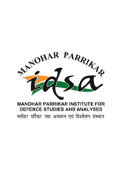Deflecting the Assassin’s Mace: The Pentagon’s New AirSea Battle Concept and its Strategic Relevance to India
Indian strategists may well find that many of the tactical quandaries faced today by the US carrier fleets cruising through the Asia Pacific are destined to become those of the Indian Navy in the not-too-distant future. Devising an AirSea Battle concept would enable it to parry blows and reassert sea control.
- Iskander Rehman
- July 07, 2010













